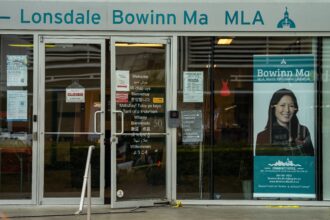In a decisive move that prioritizes student support, Yellowknife Education District No. 1 (YK1) has committed to maintaining at least 39 educational assistants for the 2024-25 school year, despite looming financial constraints that threatened significant staffing reductions.
The announcement came during Tuesday’s YK1 board meeting, where trustees unanimously approved a motion guaranteeing the retention of these crucial classroom supports. This decision stands in stark contrast to earlier projections that suggested the district might need to eliminate up to 14 educational assistant positions due to anticipated funding shortfalls.
“Our educational assistants are the backbone of our inclusive education model,” said YK1 Superintendent Jameel Aziz. “While we’re facing difficult budget realities, we recognize that reducing these positions would have a profound impact on our most vulnerable students.”
The district’s financial challenges stem from changes to the territorial funding formula and declining enrollment numbers across Yellowknife schools. Initial budget projections indicated a potential $1.4 million deficit for the upcoming academic year, forcing administrators to consider difficult staffing decisions.
Educational assistants, who provide critical one-on-one support for students with diverse learning needs, have become increasingly essential in northern classrooms where teachers often manage complex educational environments. Parents and education advocates had expressed significant concern about the potential reductions, with several attending recent board meetings to voice their opposition.
“These aren’t just positions on a spreadsheet,” said Marie Coderre, parent of a student receiving educational assistant support. “For many families, including mine, these professionals make the difference between a child succeeding or falling through the cracks.”
Board Chair Tina Drew emphasized that the decision reflects YK1’s commitment to inclusive education, though acknowledged that financial challenges remain. “We’ll need to find other areas to address our budget constraints, but this was a line we weren’t willing to cross,” Drew stated.
The district plans to absorb the financial impact through attrition in other areas, delaying certain infrastructure improvements, and possibly increasing class sizes in some grades. Administrators are also working closely with the Department of Education, Culture and Employment to advocate for additional resources that reflect the unique needs of urban northern schools.
Educational assistants themselves expressed relief at the announcement. “We’ve been living with uncertainty for months,” said Jennifer Pelley, who has worked as an EA at École J.H. Sissons for seven years. “Knowing our positions are secure means we can focus on what matters—supporting our students.”
The board’s decision aligns with growing research demonstrating the effectiveness of educational assistants in improving academic outcomes, particularly for students with learning disabilities, behavioral challenges, or those requiring additional language support.
While YK1’s commitment preserves these essential positions for now, the district’s financial outlook remains challenging. Superintendent Aziz indicated that unless the funding formula changes or enrollment increases significantly, difficult decisions may still lie ahead for other aspects of the district’s operations.
As northern communities continue navigating complex educational landscapes with limited resources, one question remains at the forefront: Will territorial governments recognize that the true cost of education extends beyond standard funding formulas, especially when supporting diverse student populations in northern contexts?
























